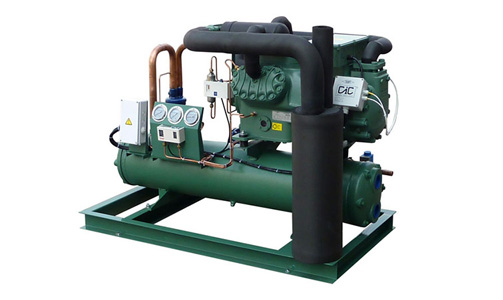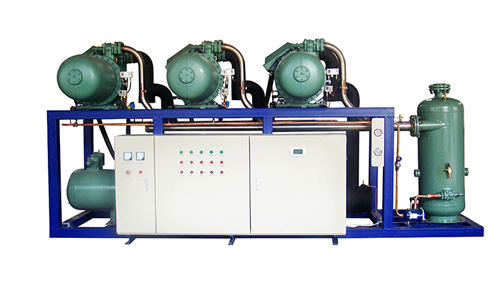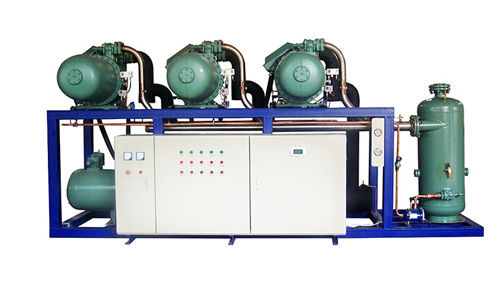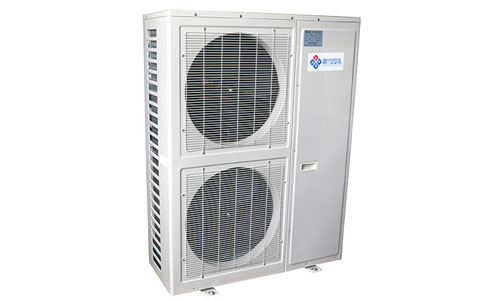Screw compressors are an essential part of many industrial and commercial operations, providing a reliable source of compressed air for various applications, from manufacturing to HVAC systems. Choosing the best screw compressor for your needs can be a daunting task, as there are numerous options available in the market, each designed for specific purposes. To help you make an informed decision, this guide will walk you through the key factors to consider when selecting the best screw compressor for your business or project.
1. Understand the Types of Screw Compressors
Before diving into the selection process, it's important to understand the different types of screw compressors available. The most common types are:
**Oil-Free Screw Compressors**: These compressors are designed to deliver compressed air without the need for lubrication. They are ideal for industries where air purity is a top priority, such as food processing, pharmaceuticals, and electronics manufacturing.
**Oil-Injected Screw Compressors**: These compressors use oil to lubricate the internal components, which helps reduce friction and improve efficiency. While they do require oil filtration to ensure air quality, they are often more cost-effective and efficient for heavy-duty applications.

HANBELL Screw Compressor Unit - Air-Cooled (-5~5℃)
2. Determine Your Air Demand and Capacity
Choosing a screw compressor with the right capacity is crucial for optimizing performance and energy efficiency. To do this, you need to determine your air demand, which is typically measured in cubic feet per minute (CFM) or liters per second (L/s). Consider the following factors:
**Peak Air Demand**: Assess the maximum air consumption your operation will require at any given time. This will help you choose a compressor with enough capacity to meet your peak demand.
**Average Air Demand**: In addition to peak demand, estimate the average air usage. A compressor that is too large will waste energy, while one that’s too small will not be able to handle the load efficiently.
**Duty Cycle**: The duty cycle refers to the amount of time the compressor is operating versus the time it’s off. If your operation requires continuous compressed air, you’ll need a compressor that can handle a 100% duty cycle, or consider one with a higher flow rate to meet intermittent demand.
3. Energy Efficiency
Energy efficiency is one of the most important factors when selecting a screw compressor. Compressors that consume more energy than necessary can significantly increase operating costs over time. Look for the following features to ensure energy efficiency:
**Variable Speed Drives (VSD)**: A compressor with a variable speed drive adjusts the motor speed according to demand, reducing energy consumption during low-demand periods. This can save a significant amount on energy costs compared to fixed-speed compressors.
**Inverter Technology**: Some screw compressors are equipped with inverters that regulate the compressor’s speed in response to varying air demand, ensuring that the compressor uses energy efficiently while providing the right amount of air.
**High Efficiency Motors**: Choose a compressor with an energy-efficient motor that meets industry standards, which can reduce energy usage and lower overall operating costs.

Semi-Hermetic Parallel Condensing Screw Compressor Unit (-20~-15℃)
4. Size and Footprint
The size of the screw compressor and its footprint are important considerations, especially if space is limited in your facility. When selecting the appropriate size, take into account the following:
**Installation Space**: Ensure you have adequate space for the compressor, including space for air intake and exhaust. Allow for proper ventilation and ensure the unit will not overheat due to inadequate airflow.
**Size vs. Output**: Larger compressors may offer more air output, but they may not be necessary for your needs if your air demand is lower. Choose a compressor that fits your needs in terms of both performance and space requirements.
5. Maintenance and Serviceability
The maintenance requirements of a screw compressor are a critical factor in its long-term reliability and operational costs. Here are some things to consider when evaluating a compressor’s maintenance needs:
**Oil Change and Filtration**: For oil-injected screw compressors, the oil must be changed regularly to ensure proper lubrication and prevent contaminants from damaging the internal components. Make sure the compressor has easy-to-access components for oil changes and regular maintenance.
**Air Filtration System**: Look for a compressor with high-quality air filters to ensure clean air output. Regular maintenance of the filtration system is essential to avoid clogging and ensure optimal performance.
**Service Support**: Consider the availability of technical support and service options. It’s helpful to choose a manufacturer with a strong service network, especially if you need emergency repairs or regular servicing.
6. Noise Level
Noise can be a concern with screw compressors, especially in environments where employees work near the compressor or if noise regulations are in place. The noise level is usually measured in decibels (dB). Consider the following:
**Soundproofing**: Some compressors are equipped with soundproofing to reduce noise levels. If noise is a concern, choose a compressor that operates quietly or invest in a soundproof enclosure for the unit.
**Noise Regulations**: Check if there are any noise regulations in your area that require you to use quieter compressors or install soundproofing. This is especially important in indoor or urban facilities.
7. Budget and Total Cost of Ownership
While initial cost is always a consideration when purchasing a screw compressor, it’s also important to consider the total cost of ownership (TCO). The TCO includes not just the purchase price, but also the operating and maintenance costs over the compressor’s lifespan. Keep in mind:
**Initial Purchase Price**: Compare prices for different models and brands. Be cautious of choosing the cheapest option, as this might compromise quality, energy efficiency, and long-term performance.
**Operating Costs**: Consider energy efficiency, maintenance costs, and how frequently the compressor will need servicing. A more expensive, energy-efficient model may provide better long-term savings.
**Warranty and Support**: Check the warranty provided by the manufacturer and the availability of service contracts. A longer warranty or service agreement may add to the upfront cost but can provide peace of mind and help reduce future maintenance expenses.
8. Brand Reputation and Reviews
Finally, research the brand reputation and customer reviews of the screw compressor you are considering. Trusted brands tend to provide high-quality, durable products, and customer reviews can offer insights into the reliability, performance, and service of the compressor. Look for brands that are known for their innovation, efficiency, and solid after-sales support.
Conclusion
Choosing the best screw compressor for your needs involves balancing factors such as air demand, energy efficiency, maintenance requirements, and budget. Understanding the different types of compressors, considering your facility’s specific needs, and evaluating the total cost of ownership will help you make the best decision for your operation. Be sure to choose a compressor that offers long-term reliability, safety, and cost-effectiveness, and don’t hesitate to consult with experts or review product specifications and customer feedback before making a purchase.








